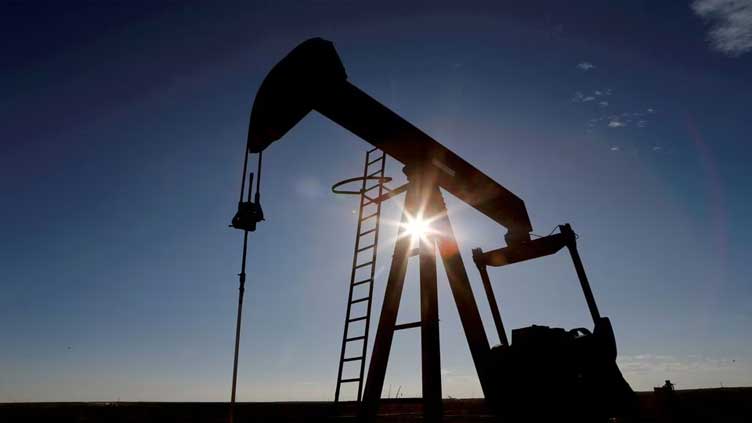Oil drops over 1% on higher dollar, interest rate concerns

Business
Oil drops over 1% on higher dollar, interest rate concerns
SINGAPORE (Reuters) - Oil prices turned lower on Monday as the US dollar strengthened and as investors mulled over a possible May interest rate hike by the US Federal Reserve, which could dampen economic recovery hopes.
Brent crude futures were down 97 cents, or 1.1%, at $85.34 a barrel at 11:14 a.m. EDT (1514 GMT), while U.S. West Texas Intermediate crude fell $1.04, or 1.3%, at $81.48 a barrel.
Both contracts notched their fourth weekly gain in a row last week, the longest such streak since mid-2022.
The US dollar has been strengthening alongside interest rate hikes, making dollar-denominated oil more expensive for holders of other currencies. The dollar index gained around 0.65% on Monday.
"The dollar is a little bit stronger, and that seems to be putting a little bit of pressure on oil here," Price Futures Group analyst Phil Flynn said.
Traders are betting the Fed will raise its lending rate in May by another quarter of a percentage point and have pushed out to late this year expectations of a rate cut, as typically occurs in a slowdown.
Meanwhile, the release of China's first-quarter gross domestic product (GDP) data at 0200 GMT on Tuesday is expected to be positive for commodity prices, with the International Energy Agency (IEA) forecasting it will account for most of 2023 demand growth.
However, the IEA also warned in its monthly report that output cuts announced by OPEC+ producers risked exacerbating an oil supply deficit expected in the second half of this year and could hurt consumers and a global economic recovery.
Further tightening supplies, oil exports from northern Iraq to the Turkish port of Ceyhan remain at a standstill almost three weeks after an arbitration case ruled Ankara owed Baghdad compensation for unauthorised exports.
In Saudi Arabia, crude oil exports in February fell to 7.455 million barrels per day from 7.658 million bpd in January, official data showed on Monday.

